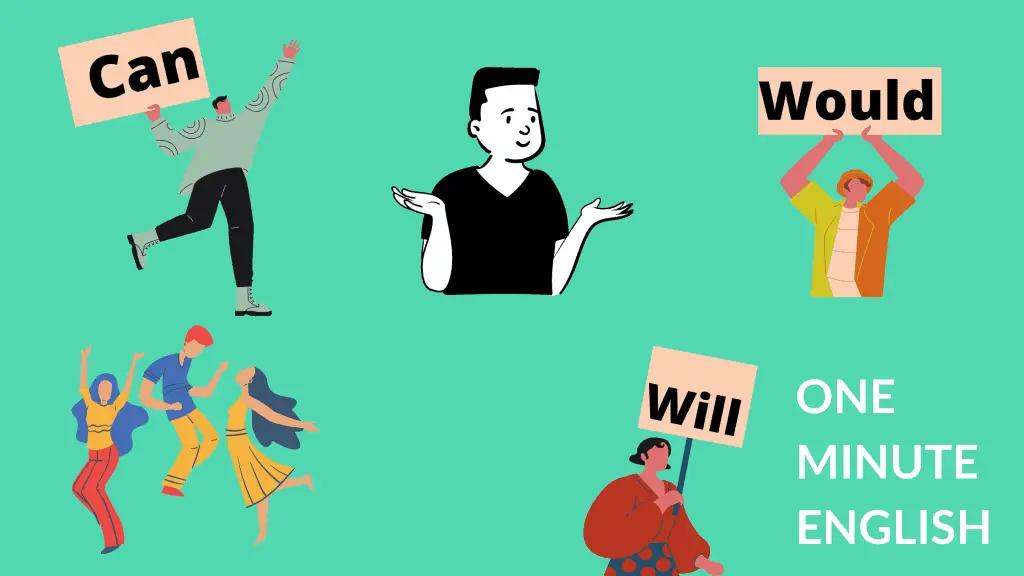Practice English or Spanish with AI here
Modal verbs examples and meaning
Modal verbs add more meaning to the main verb.
I might go to the cinema later. (adds possibility)
There is no need to conjugate the third person of a modal verb.
He might go to the cinema later. (not mights)
Most common modal verbs
Will
We use will in the following situations:
Promise
I will do the washing later.
I will marry you.
Instant decision
I will help you.
I will buy some milk.
Certain prediction
We will use robots more in the future.
Liverpool will be champions this year.
As you can see, will is usually used for future situations.
Would
Imagined situation
I would go to Bali if I had the money.
I would have felt better if I hadn’t eaten all that chocolate.
Regular events in the past(used to)
I would play football for hours when I was a child.
I would go to the seaside every summer.
Reported speech future
Jane said she would meet her mother.
He said he would write the report.
Should
A good idea/advice
You should go to the doctor.
You should see that movie.
When something is not right
They should be here by now.
The screw should be here somewhere.
Uncertain prediction
I have done everything so it should work.
The train should arrive in 5 hours.
Must
Necessity/Obligation
You must practice speaking English.
You must clean your house.
Deduction/Logical Understanding/Speculation
You have been walking all day. You must be tired.
It is very hot in here. You must be thirsty.
Have to
Obligation/Necessity
I have to wear glasses to read the newspaper.
I have to go to work every day.
May
Possibility
I may go to church this Sunday.
I may be late this evening.
Ask for permission(Polite)
May I use the bathroom?
May I have some milk?
Might
Possibility
I might go to church this Sunday.
I might be late this evening.
Can
Possibility/Allowed
We can eat ice cream after dinner.
We can have a dog next year.
Ability
I can speak four languages.
I can play the guitar.
Permission
Can I use the bathroom?
Can I go visit Thailand now?
Offers
Can I help you with your homework?
Can I do anything to help you?
Could
Possibility/Suggestion
We could go for a walk after dinner.
We could spend that money on a new dishwasher.
Ability in the past
I could play the piano when I was a child.
You could buy a lot with 1 pound when I was a child.
Request
Could you pass me the water?
Could I use your phone, please?
Negative modal verbs
Some negative modal verbs do not have a direct opposite meaning.
Mustn’t
Opposite of Must. It is necessary that you do not do that.
You mustn’t walk on the grass.
You mustn’t smoke in here.
Don’t have to
You do not need to, but you can if you want.
You don’t have to do your homework. (but you can if you want)
You don’t have to study grammar.(but it helps if you do)
Less common modal verbs
Had better
Good Idea/Advisable
I‘d better go home before it starts raining.
I had better not buy that coat.
Shall
Offer
Shall I help you with your coat?
Shall I make you a cup of tea?
Suggestion
Shall we go?
Ought to
Advice
You ought to know better!
Deduction
$50 dollars ought to be enough.
Needn’t
Not necessary
You needn’t do your homework.
- 10 Words or Phrases “To Make Her Feel Special” - October 16, 2024
- Synonym Generator - September 11, 2024
- [BrutallyHonest] Langua AI Review – Can you learn a language with AI? - April 23, 2024


